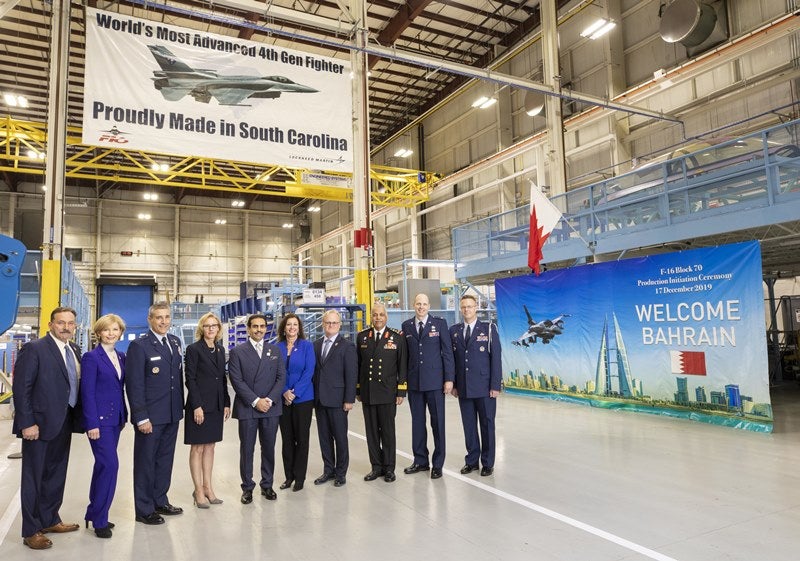
Lockheed Martin has started construction on the first F-16 Block 70 for the Royal Bahraini Air Force at the F-16 production line in Greenville, South Carolina, US.
Bahrain ambassador to the US Shaikh Abdullah bin Rashed Al Khalifa toured Lockheed Martin’s Greenville production line on 17 December.
The US company is under contract to build 16 new F-16 Block 70 aircraft for Bahrain.
The Royal Bahraini Air Force is the first customer of the F-16 Block 70, which is the newest production standard of the F-16 fighter.
In May, the US Government approved a potential sale of AIM-120C-7 AMRAAM missiles, AIM-9X missiles, AGM-84 Block II Harpoon missiles and other weapons Bahrain to support the country’s F-16 fleet.
Lockheed Martin Integrated Fighter Group vice-president and general manager Bridget Lauderdale said: “Lockheed Martin’s partnership with Bahrain began more than 40 years ago and it continues today with the F-16.

US Tariffs are shifting - will you react or anticipate?
Don’t let policy changes catch you off guard. Stay proactive with real-time data and expert analysis.
By GlobalData“Bahrain was the first country in the Gulf region to acquire the F-16 and the first customer in the world to procure the advanced F-16 Block 70.”
The company is witnessing rising demand for new production F-16 aircraft. Bahrain, Slovakia and Bulgaria are the three customers who have signed up for the procurement of the advanced fighter machines.
The Greenville production line is supported by over 400 suppliers across the US.
Lockheed Martin has incorporated enhancements to the Block 70 configuration, including advanced avionics, weapons, and modernised cockpit.
The fighter is also equipped with an active electronically scanned array (AESA) radar and an automatic ground collision avoidance system (Auto GCAS).
Auto GCAS is designed to prevent F-16 pilot fatalities and has been in use by the US Air Force since 2014. The system mitigates the risk of crashing the aircraft into the ground in case a pilot loses consciousness during a high-speed manoeuvre.
The advanced fighter offers an extended structural service life of around 12,000 hours.



